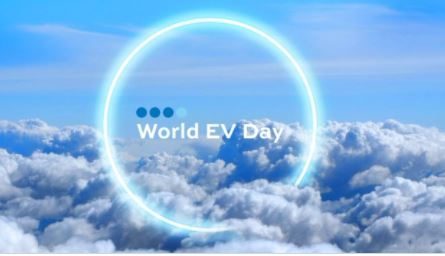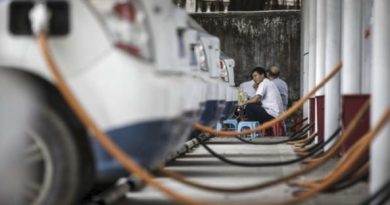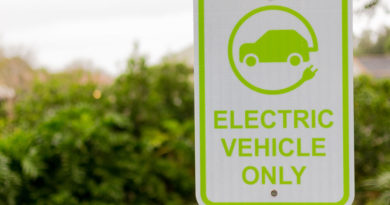On World EV Day, India Still Looks for Reasons to Celebrate

It’s World EV day today. With institutions joining hands to dedicate a day in the calendar to celebrate sustainable road transport and ensure a future for zero-emission cars, the stage seems set for a concerted effort by all to ensure a fighting chance against climate change and pollution.
Off course electric vehicles have some way to go yet, be it in terms of affordability or even the source of the electricity that powers them. But it remains the best hope to move away from fossil fuel-powered vehicles, which are surely in the final era of their existence.
In its inaugural year, the rampaging coronavirus pandemic has ensured that the EV day effort has largely been a social media-led campaign to raise awareness around the sustainability benefits of EVs. Though in India, some offline events have been organised to help push the cause.
Leading the charge here are Tata Motors and Mahindra Electric, which joined the global alliance as partners. Green.TV, the ‘sustainability media company’ which came up with the concept, also roped in Jaguar, Nissan and Hyundai among some other big names in the partners’ list.
Mostly an exercise aimed at educating people, companies in this space led by EV manufacturers have taken to social media to organise events, drives and meetups to push their green cause and highlight the benefits of sustainable transport.
On the occasion of @World_EV_Day, here are the highlights of the proud owners of #NexonEV – The Electric SUV powered by #Ziptron in Bangalore, as they rendezvous at a Tribes Meet in Narsapura on Sunday, 6th September!
Want to join the electrifying Nexon EV Tribe? pic.twitter.com/ZbxQGFRAMq
— Tata Motors Electric Mobility (@TatamotorsEV) September 9, 2020
Tata Motors has been very active on social media in promoting its Nexon EV which has become India’s highest-selling electric car for now. According to the company, Nexon EV was the best-selling EV in its segment and has helped Tata Motors command a 62% market share in EVs in the June quarter of the current financial year.
This EV has perhaps cracked the formula in a highly competitive market like India with its tough SUV looks coupled with a nifty electric powertrain. To get around the affordability challenge, the firm has even come up with some instalment led ownership plans.
Mahindra Electric took the opportunity to announce a global launch of its Mahindra Electric Scalable Modular Architecture (MESMA) 48 platform for EVs, a technology solution which has till date powered 11,000 EVs on India’s roads and can electrify a range of vehicles including three-wheelers, quadricycles and even compact cars.
On #WorldEVDay we want to campaign harder for electric mobility by launching the MESMA 48V platform globally — a versatile & sustainable technology that can change the way we view automobiles forever. Tap to know more: https://t.co/jwQJPAr6nk #DriveElectric
— Mahindra Electric (@MahindraElctrc) September 9, 2020
But for all the noise around EV’s, the road ahead is no smooth drive. India is still missing the sort of government policies that have pushed EV growth in other countries like China and many countries in Europe.
Auto manufacturers say the policies are too slow in the making and then implementing, for a dynamic sector like EVs. Take the Delhi EV policy, announced in early August, by its Chief Minister Arvind Kejriwal.
Under the new policy, the government promised to waive registration fee, road tax, and provide an incentive of up to Rs 1.5 lakh for new electric cars and up to Rs 30,000 for e-rickshaws, electric two-wheelers, autos and freight vehicles. Most importantly, the state government incentives are to be over and above the central government’s FAME II scheme.
A month since the announcement, the impact on the ground is practically zero.
With the ‘bestseller’ Nexon EV priced from Rs 13.99 lakhs and Tigor from Rs 9.54 lakhs, aspiring buyers of electric cars are sorely missing an affordable EV once ably served by the Mahindra E2O in the higher volume mid-segment.
The e-bike and e-scooter segment is way more promising, with models from Ather, Bajaj and Hero designed to appeal to the younger sections of users. With the advent of swappable battery tech, electric scooters and bikes are becoming practical and popular.
Charging infrastructure is another story as promises have been made by many of installing stations across Delhi but mostly on paper still. Range anxiety for buyers is a very real issue, and was the biggest reason the 10,000 vehicle tender from EESL last year was finally shrunk massively.
The first World EV day could have been the day to make headlines with new EV launches and the inauguration of charging stations but what we see is mere lip service on social media with announcements, hashtags and photos marking the occasion.
Here’s hoping that by the time the next EV day comes around, we will have something more substantial to celebrate in India too. One suspects it will take the personal intervention of the prime minister, and a catchier slogan, to get the wheels really moving in here.




